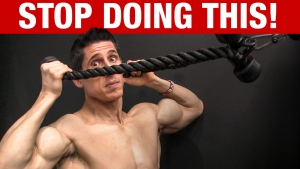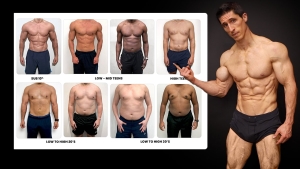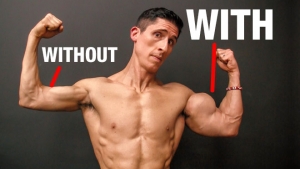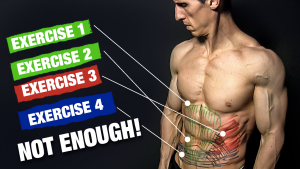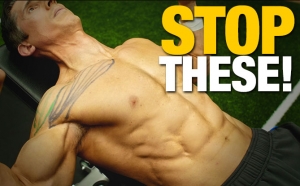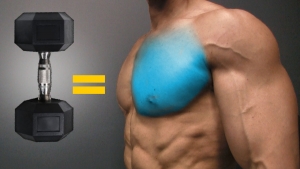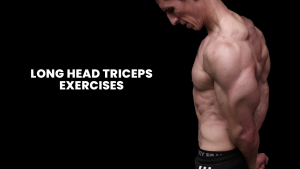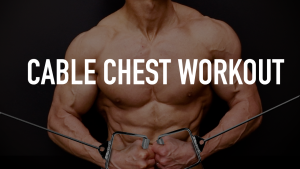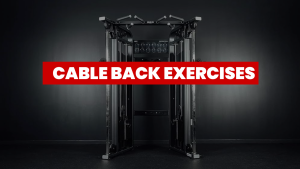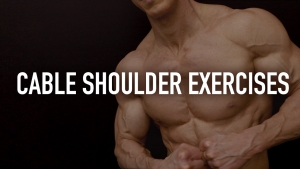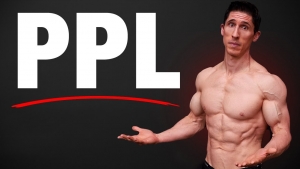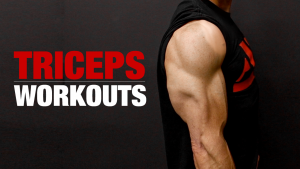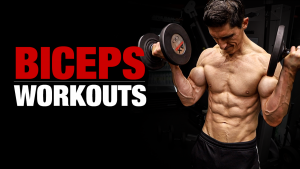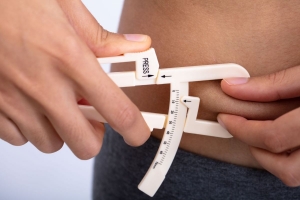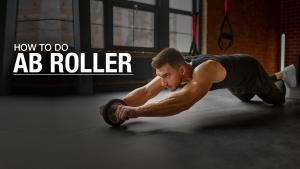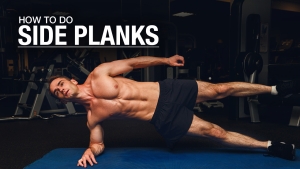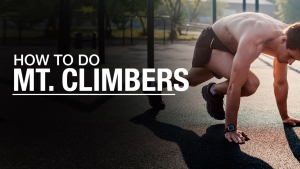If you want to flatten your lower belly you actually have to do more than just diet. In this video, I’m going to show you how even if you create a caloric deficit you still might have a protruding lower abdomen because the muscles in this area, particularly the transverse abdominis, are not as toned and developed as they should be.
This is something that can be addressed however with something as simple as one move that can be done first thing in the morning for less than a minute. The exercise is called the stomach vacuum. This is an abdominal exercise you may associate with old time bodybuilders, but there is more value to it than preparing you to step on a stage you likely never had any desire to in the first place.
The role of the transverse abdominis muscle is to act like your own internal weight belt. When contracted, it will shorten and in doing so, cinch down on the lower abdomen and tighten up your waist. The key to getting this right however is not simply to suck in your belly. That is not going to contract this muscle as it needs to be.
Remember, the orientation of a muscle’s fibers will always tell you the preferred function of the muscle. Here, the fibers run east to west around your waist. When toned, this muscle will sit naturally tighter (ie. shorter) than it will when untrained and de-conditioned. Just like the upper back muscles will often lead to forward rounded shoulders and a slumped posture when they are not trained or strengthened, the same thing happens here.
That said, the fix is quick and easy and will not take much added effort on your part. The only thing you may have to do is practice the movement just a little bit to get a better feel of how to contract the muscle. So here is how you want to do it. First, it may be easiest to practice this by leaning onto something like the edge of a bed or table since engaging the transverse abdominis is going to be more immediate from this position than it will be in standing.
Lean forward onto your elbows and take a big deep breath in. From here, slowly expel all of the air out of your lungs, I mean every last bit that you can consciously get rid of. At that moment, instead of breathing in, try to pull your belly button back to touch your spine. If you did this right, you will find that it is fairly easy to do this because of the vacuum or negative pressure you have created up to this point in your abdomen.
Pull the belly button back and keep the contraction held for as long as you can. In the beginning, you are going to find that you will not want to take a breath in during the process since you will likely lose the ability to keep the contraction. As you get better at it however, you will not only be able to hold your breath for longer but you will be able to take small breaths in without sacrificing the quality of the contraction. Work up to three 20 second holds but start with 4-5 repetitions of shorter duration holds. The key is not holding for many many repetitions but rather the consistency of doing this every day that will have the biggest benefits for you to achieving a smaller flatter abdomen.
Of course, if you want to get rid of the body fat overlying this area then you are going to need a good meal plan to follow as well. We have them included in all of our programs at athleanx.com at the link below but the best option for you is our brand new Core4 Abs program that will train every muscle in your core as it was supposed to be. Get a flatter, tighter midsection and a meal plan to support your fat loss day by day.
For more videos on how to flatten your lower belly and get rid of love handles, be sure to subscribe to our channel here on youtube at the link below and turn on your notifications so you never miss a new video when it’s published.
Build Muscle in 90 Days – http://athleanx.com/x/my-workouts
Subscribe to this channel here – http://bit.ly/2b0coMW

Jeff Cavaliere M.S.P.T, CSCS
Jeff Cavaliere is a Physical Therapist, Strength Coach and creator of the ATHLEAN-X Training Programs and ATHLEAN-Rx Supplements. He has a Masters in Physical Therapy (MSPT) and has worked as Head Physical Therapist for the New York Mets, as well as training many elite professional athletes in Major League Baseball, NFL, MMA and professional wrestling. His programs produce “next level” achievements in muscle size, strength and performance for professional athletes and anyone looking to build a muscular athletic physique.
